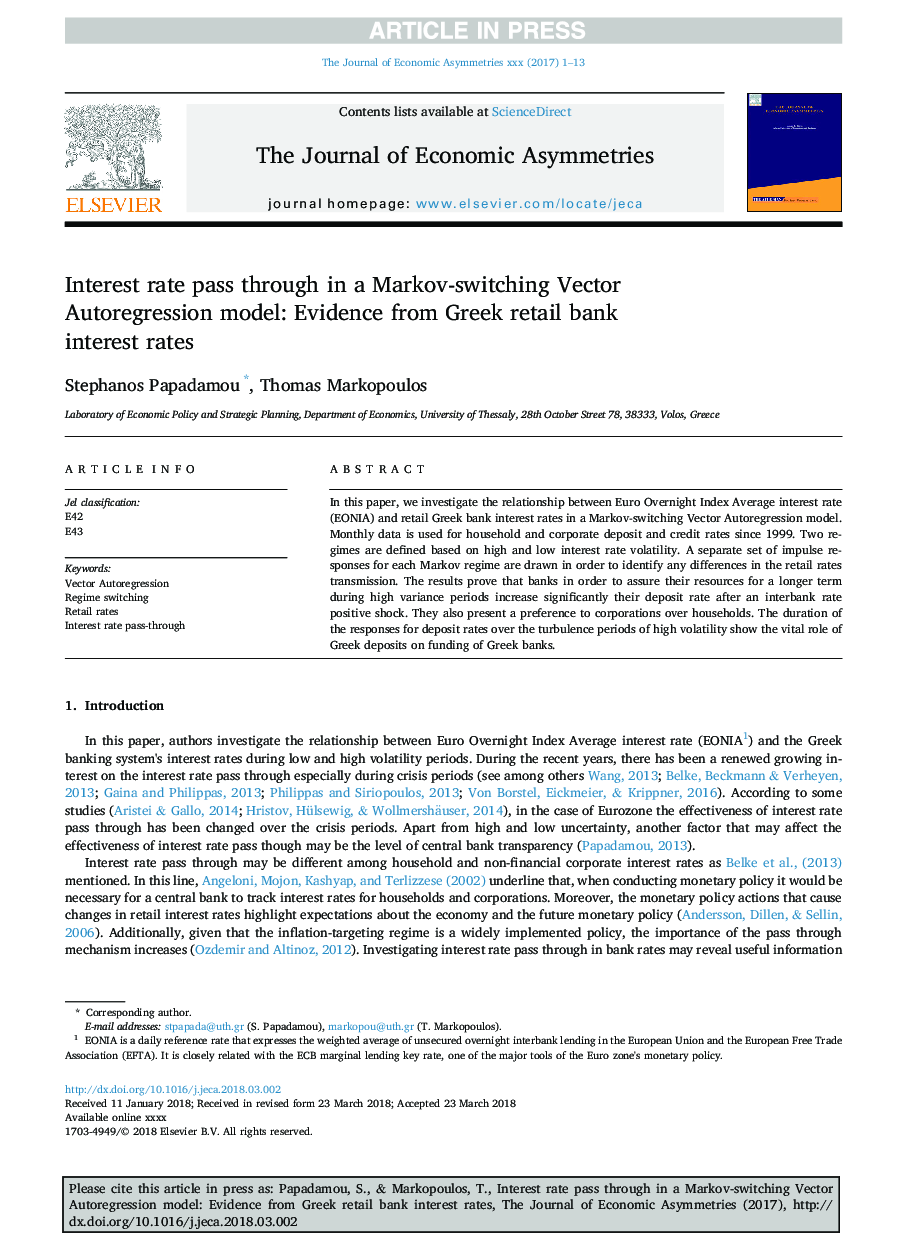| Article ID | Journal | Published Year | Pages | File Type |
|---|---|---|---|---|
| 7358336 | The Journal of Economic Asymmetries | 2018 | 13 Pages |
Abstract
In this paper, we investigate the relationship between Euro Overnight Index Average interest rate (EONIA) and retail Greek bank interest rates in a Markov-switching Vector Autoregression model. Monthly data is used for household and corporate deposit and credit rates since 1999. Two regimes are defined based on high and low interest rate volatility. A separate set of impulse responses for each Markov regime are drawn in order to identify any differences in the retail rates transmission. The results prove that banks in order to assure their resources for a longer term during high variance periods increase significantly their deposit rate after an interbank rate positive shock. They also present a preference to corporations over households. The duration of the responses for deposit rates over the turbulence periods of high volatility show the vital role of Greek deposits on funding of Greek banks.
Related Topics
Social Sciences and Humanities
Economics, Econometrics and Finance
Economics and Econometrics
Authors
Stephanos Papadamou, Thomas Markopoulos,
